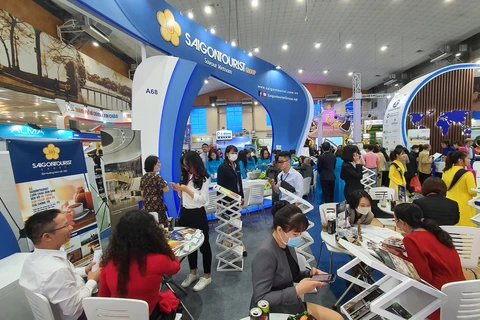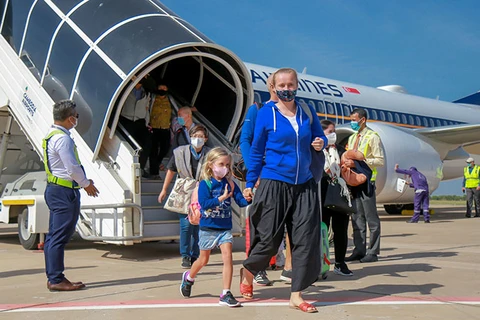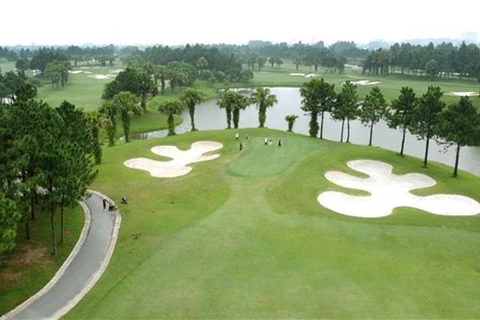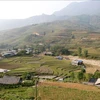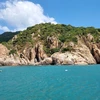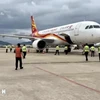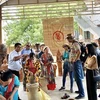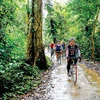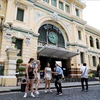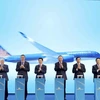Hanoi (VNA) – Phu Quoc island in the Mekong Delta province of Kien Giang is a “hot” place to travel. It is also the first place where controversial document-based regulations on collecting tips for tour guides have been circulated.
Phu Quoc Professional Association of Tour Guides has recently sent a notice to its members, which says that tour guides who are members of the association can collect tips from travellers to Phu Quoc from May 15.
The gratuity is 25,000 VND (over 1 USD) per traveller per day for Vietnamese tourists, 2 USD per day for Asian travellers and 4 USD for other foreign visitors.
In Canada, customers normally give an extra 10-15% of the invoice value. In Italy, in all cases, tourists will tip for services. Meanwhile in France, 15% service charge has been added to the bill but it would be better if tourists leave a little extra tip as a thank you for the dedication of the staff.
Meanwhile, Japanese people never tip, because to them this is an insult. Japanese customers believe that they will still receive the best quality of services without having to spend any more money. In the Republic of Korea, China, and Finland, tourists don't even need to tip.
In the difficult economic situation due to the pandemic and conflicts in the world, everyone has to tighten spending, so it may be difficult for tourists to accept the extra mandatory tip.
Some travel firms collect tips in advance and deliver them to tour guides, while others don’t mention a gratuity when negotiating with partners.
An official from a Hanoi tourism company warned that if all travel firms collect tips in advance, their tour guides will not try their best to serve tourists because even if they work better than other tour guides, they already receive the same tips.
For domestic tours, in general, travel firms don’t mention tips when designing tours because tour guides and travellers discuss the tips themselves.
As for outbound tours, some travel firms collect money for tips from customers when they pay tour fees, 3-6 USD or 10 USD, depending on the destinations, such as Asia, Europe or the US. If travel firms don’t collect money for tips in advance, they remind travellers that the tour fees don’t include tips, and when the tours finish, tour guides can collect tips openly.
People believe the document released by the Phu Quoc Professional Association of Tour Guides is an internal document valid for the association’s members. But this move may affect tourism activities nationwide.
In Vietnam, tipping is not compulsory and only happens at high-end venues. In tourist cities like Hanoi, Ho Chi Minh City and Da Nang, tipping is more common.
In some cases, travel companies may have their own rules about tipping. Tipping tour guides entirely depends on tourists. Therefore, the regulation in the notice has caused some controversy.
Nguyen Phi Phong, an official from My Adventures (Mytour.vn), said he disagreed with the regulations on tip rates for tour guides.
Phong believed it is unreasonable to boost travel demand when tourism activities have just been fully reopened from March 15, a milestone for Vietnam’s tourism industry.
There is no rule that requires travellers to tip tour guides. If tourists ask for it, travel firms only suggest a tip level, Phong said.
He is concerned that if tip collection is implemented in Phu Quoc, tourists may think that tipping would roll out in other destinations in Vietnam, leading to higher costs for a long trip.
Nghiem Thuy Ha, CEO of Aadasia Group Tourism and Trading Company, was surprised at the move, adding that it was unreasonable.
Ha said it will make customers uncomfortable with the different tipping between international and domestic visitors, although they are on the same trip and receive the same services./.


